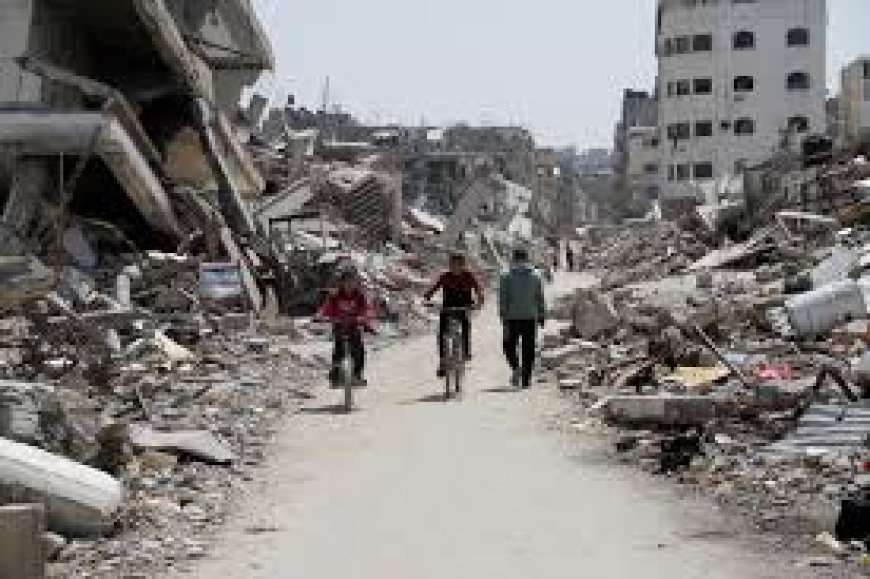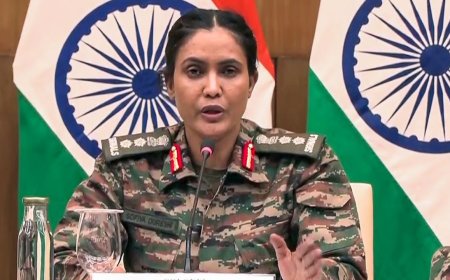Two countries, two brutal attacks: Why violence against Indians abroad is on a rise again
Two shocking attacks in Australia and the U.S. have reignited concerns over the safety of Indians abroad. Here's what’s behind the rising violence and what it means for India.

Rising Concerns Over Safety of Indian Diaspora After Brutal Incidents in Australia and the U.S.
Two shocking incidents in less than a week—one in Sydney, Australia, and another in New Jersey, USA—have reignited concerns over the safety of Indian nationals and people of Indian origin living abroad. These back-to-back violent attacks, both racially charged and targeting Indian individuals, have drawn global attention and spurred strong diplomatic responses from New Delhi.
The Ministry of External Affairs (MEA) has already issued statements demanding swift action, while Indian embassies in both countries have reached out to local authorities. Meanwhile, experts are pointing toward growing xenophobia, misinformation campaigns, and lack of community support as contributing factors.
Incident 1: Indian Student Fatally Attacked in Sydney
On July 21, a 23-year-old Indian student, Aarav Verma from Pune, was fatally stabbed at a railway station in western Sydney. According to Australian police, the attack appeared to be “unprovoked and racially motivated.” Verma was pursuing a master's degree in information systems and had arrived in Australia only six months ago.
The suspect, a 35-year-old man with a history of violent offenses, has been arrested. However, members of the Indian community in Sydney staged peaceful protests, demanding stronger security measures and better integration support for international students.
“This is not an isolated incident. There's been a pattern of targeted violence over the past two years, especially against South Asian migrants,” said Meera Bhatt, an Indian community activist based in Sydney. “It reflects a deeper societal issue—one that the authorities must address holistically.”
Incident 2: Family of Four Assaulted in New Jersey
Just days later, on July 24, a family of four—originally from Gujarat—was assaulted while shopping at a retail store in Edison, New Jersey. Eyewitnesses claim the attacker hurled racial slurs and physically assaulted the father and eldest son while onlookers captured the incident on mobile phones. The attacker fled the scene but was apprehended the next day.
Local police have filed hate crime charges. The Indian consulate in New York has extended support to the family and stated it is in constant touch with local authorities.
“This level of animosity and violence toward a peaceful immigrant family is deeply troubling,” said Prof. Michael Levin, a sociologist at Rutgers University. “The rise in anti-immigrant sentiment in suburban America correlates with economic uncertainties and political radicalization.”
A Pattern Re-Emerging?
Data from multiple immigration support agencies suggests a worrying trend. According to the 2024 Global Indian Diaspora Report, hate crimes against Indians abroad rose by nearly 18% year-over-year. While attacks peaked during the pandemic era and declined briefly in 2023, incidents in 2025 have once again surged—particularly in English-speaking nations.
A key reason cited is the growth of social media disinformation networks, which often scapegoat immigrants for local unemployment or crime. Additionally, language barriers, inadequate community representation in law enforcement, and delayed response times exacerbate the vulnerability of the diaspora.
Government & Diplomatic Response
India’s Ministry of External Affairs, led by Foreign Minister S. Jaishankar, condemned both incidents. "We are deeply anguished by these horrific attacks. We urge the respective governments to ensure justice is served and steps are taken to prevent such incidents in the future," read the official statement.
High Commissioners from Australia and the U.S. have assured cooperation and promised internal reviews of law enforcement protocols regarding hate crimes.
In Parliament, opposition leaders demanded a comprehensive review of India's emigration policy and safety measures abroad, including real-time embassy helplines and diaspora distress protocols.
Market Context: Implications on Immigration and Remittances
India has the world’s largest diaspora—over 32 million Indians live outside the country. The economic significance of this community is enormous. In FY24, India received $125 billion in remittances, accounting for 3.5% of the country’s GDP. Any threat to the welfare of this group poses long-term risks, both economically and socially.
“Rising attacks will make Indian families think twice before sending their children abroad for education or employment,” said Raghav Gupta, senior economist at Nomura India. “This could impact overseas university enrollments, international job applications, and eventually, inflow of remittances.”
Investor Outlook: Impact on Education, Real Estate & Insurance Sectors
-
Overseas Education: India's booming international student market may experience temporary setbacks. Shares of companies like UpGrad and BYJU’S FutureSchool, which rely on outbound education services, may see downward pressure.
-
Real Estate Investments Abroad: Wealthy Indians investing in property in places like Sydney, Melbourne, or New Jersey might reconsider purchases due to safety concerns.
-
Travel & Health Insurance: Expect a spike in demand for overseas travel insurance with expanded coverage for racial violence and hate crimes. Insurers like Tata AIG and ICICI Lombard are reportedly already reviewing their policy inclusions.
The Road Ahead: What Needs to Be Done
Experts advocate a multipronged strategy to curb such incidents. Recommendations include:
-
Establishing rapid-response Indian diaspora task forces in embassies.
-
Bilateral agreements on hate crime prevention and reporting.
-
Better cultural integration programs for international students and workers.
-
Stronger legal protections for minority communities in host countries.
“This is not just a law enforcement issue. It's a socio-political challenge that demands coordinated action between governments, civil society, and media,” noted Dr. Reena Patel, Global Policy Advisor at the International Migration Council.
The back-to-back attacks on Indians in Australia and the U.S. are more than isolated hate crimes; they represent a dangerous undercurrent of growing intolerance in host societies. For a nation like India, whose global footprint continues to expand, ensuring the safety of its citizens abroad must remain a top diplomatic and social priority.
As India prepares to engage more deeply in the global economic and political landscape, the protection of its diaspora will play a crucial role in preserving not just remittance flows, but also national morale and global credibility.
What's Your Reaction?
 Like
0
Like
0
 Dislike
0
Dislike
0
 Love
0
Love
0
 Funny
0
Funny
0
 Angry
0
Angry
0
 Sad
0
Sad
0
 Wow
0
Wow
0












































































